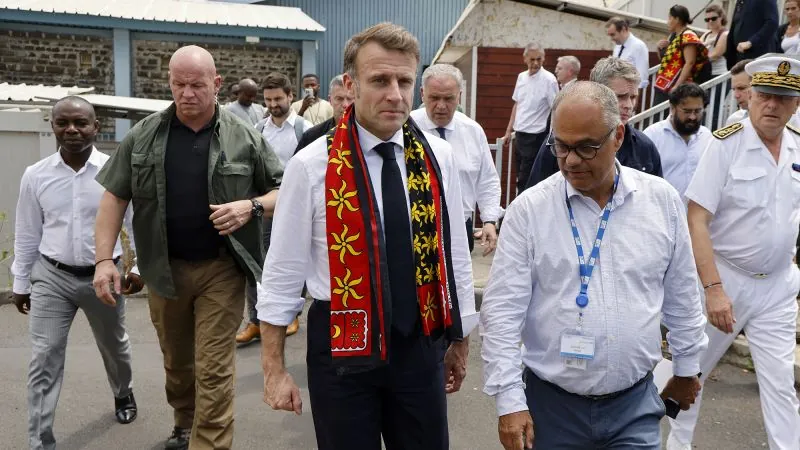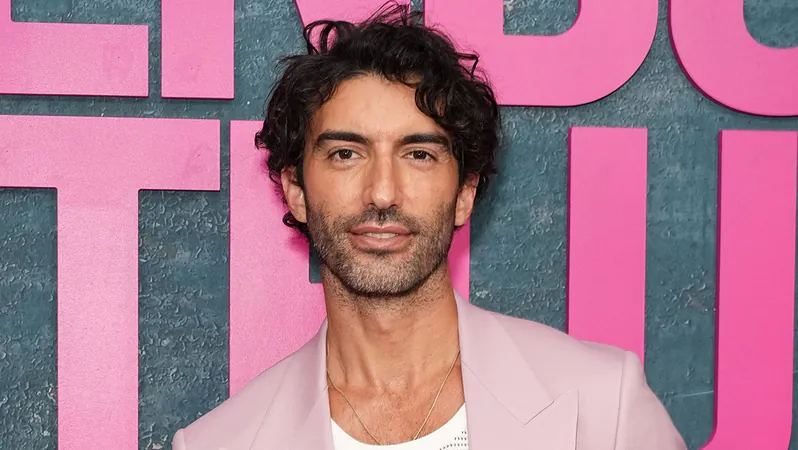
Anger Erupts as President Macron Visits Devastated Mayotte After Cyclone Chido
2024-12-19
Author: Ken Lee
Overview of the Situation in Mayotte
In a recent visit to Mayotte, the Indian Ocean archipelago rocked by the catastrophic Cyclone Chido, French President Emmanuel Macron faced significant backlash from local residents grieving the loss of life and infrastructure. The cyclone, which struck just days before his arrival, has claimed at least 31 lives, with fears that the true toll may reach hundreds.
Local Residents Express Frustration
Upon landing, Macron was met with frustration from residents who believe the French government has not provided sufficient support in the wake of the disaster. "The water isn’t there, no services are there. After six days, is that normal?" one frustrated man asked the president, highlighting the dire lack of resources the community is facing.
Heart-Wrenching Testimonies
Wives of Mayotte articulated their suffering to Macron, pleading, "We have young children, we are without water, without electricity." Their heart-wrenching testimonies painted a picture of devastation and desperation, further magnified by a public outcry over the limited aid brought by the president—just four tons of supplies for a population of over 300,000. Local residents criticized the meager offerings, equating it to a mere tin of sardines per person, a sentiment echoed by many who shared images of scant food provisions on social media, calling it an inadequate response to their needs.
Government's Response to the Crisis
In response to the rising anger, Macron extended his stay in Mayotte, initially scheduled for one day, and announced the creation of a compensation fund for uninsured victims of the cyclone. The government's plan to "rebuild" Mayotte with new “criteria” prompted skepticism from the populace, who expressed that new efforts must translate into tangible resources and support.
Impact of Cyclone Chido
The cyclone, classified as Category 4, brought winds exceeding 220 km/h (136 mph), devastating neighborhoods and crippling essential services like electricity, and severely damaging local infrastructure, including healthcare facilities and schools. The island’s only airport also suffered significant damage, making it hard to assess the full extent of the devastation.
Health Risks and Migrant Concerns
Local officials have underscored the dangers of a potential health crisis due to compromised sanitation and drinking water systems, raising alarms about possible cholera outbreaks. France’s health minister announced preventive measures, including the distribution of 10,000 doses of cholera vaccine to combat any potential outbreak. Further complicating the situation is the presence of approximately 100,000 undocumented migrants living in precarious conditions in Mayotte, which is expected to complicate relief and recovery efforts.
French Government's Measures
In response to the crisis, the French government declared a "state of exceptional natural disaster" and has begun freezing the prices of basic goods in a bid to control the economic fallout of the disaster. As the humanitarian situation unfolds, the International Federation of Red Cross and Red Crescent Societies rushed to deliver aid to the hardest-hit regions after losing contact with 200 of their volunteers.
National Mourning and Future Outlook
Macron’s announcement of a national day of mourning for the cyclone victims aims to unify France in solidarity with the grieving citizens of Mayotte. "We all share the pain" of the people of Mayotte, he stated emphatically during his visit. While the president took steps to address the crisis, many remain skeptical about whether these efforts will translate into the immediate relief that Mayotte desperately needs.
Conclusion: A Turning Point?
With the people of the archipelago expressing their despair, the full impact of Cyclone Chido continues to settle in, leaving questions about both the short-term recovery and long-term support for this beleaguered French territory. As the world watches, can Macron rise to the challenge and restore hope to the people of Mayotte or will this disaster mark a turning point in the relationship between the islanders and the French government?


 Brasil (PT)
Brasil (PT)
 Canada (EN)
Canada (EN)
 Chile (ES)
Chile (ES)
 España (ES)
España (ES)
 France (FR)
France (FR)
 Hong Kong (EN)
Hong Kong (EN)
 Italia (IT)
Italia (IT)
 日本 (JA)
日本 (JA)
 Magyarország (HU)
Magyarország (HU)
 Norge (NO)
Norge (NO)
 Polska (PL)
Polska (PL)
 Schweiz (DE)
Schweiz (DE)
 Singapore (EN)
Singapore (EN)
 Sverige (SV)
Sverige (SV)
 Suomi (FI)
Suomi (FI)
 Türkiye (TR)
Türkiye (TR)